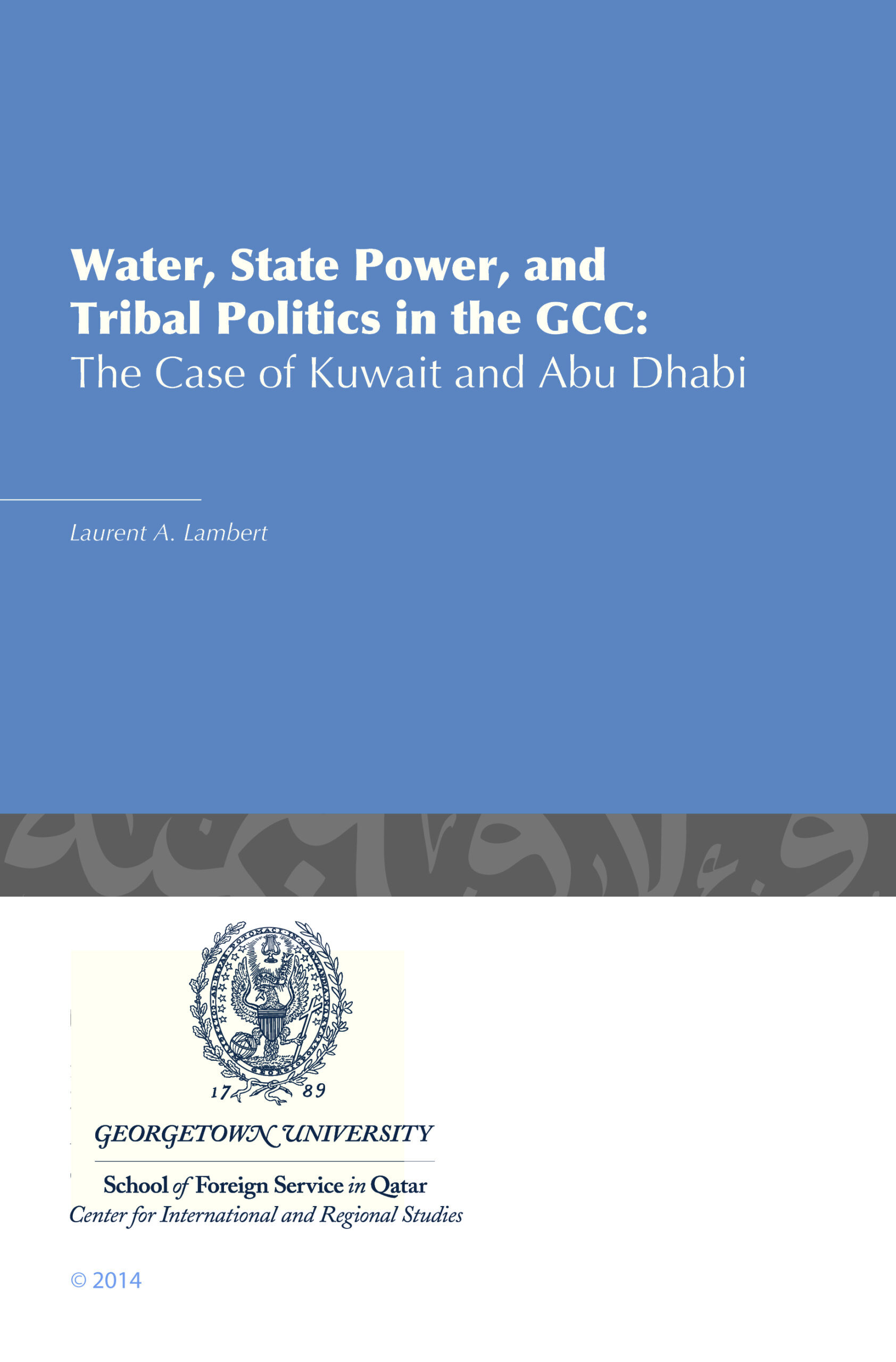Water, State Power, and Tribal Politics in the GCC: The Case of Kuwait and Abu Dhabi

To cite this publication: Laurent A. Lambert, “Water, State Power, and Tribal Politics in the GCC: The Case of Kuwait and Abu Dhabi,” CIRS Occasional Paper no. 15 (Doha, Qatar: Center for International and Regional Studies, 2014).
This paper shows that the GCC cities’ remarkable capacity to provide water to all their inhabitants despite the regional aridity should not be explained solely by apolitical factors such as the availability of desalination technologies and massive energy resources. Although acknowledging their importance, this paper demonstrates that the historical evolutions and achievements of the water sectors in Abu Dhabi and Kuwait city over the twentieth century are first and foremost the product of local and regional politics, and of reformist leaders’ agency at various times. Major changes in water governance can also be seen as a tool for, and as a signifier of, broader state reforms and changing politics. After independence, the manufacturing, subsidizing, and massive allocation of desalinated water were part of a political strategy aimed at redistributing oil rent to facilitate the tribes’ allegiance to the regimes, and to legitimize the increasing power of the new states. By contrast, the region’s recent trend of water privatizations, as in Abu Dhabi, Doha, and Riyadh, for instance, represents a strategy of gradually streamlining the rentier states and liberalizing their economies with a post-rentier perspective.